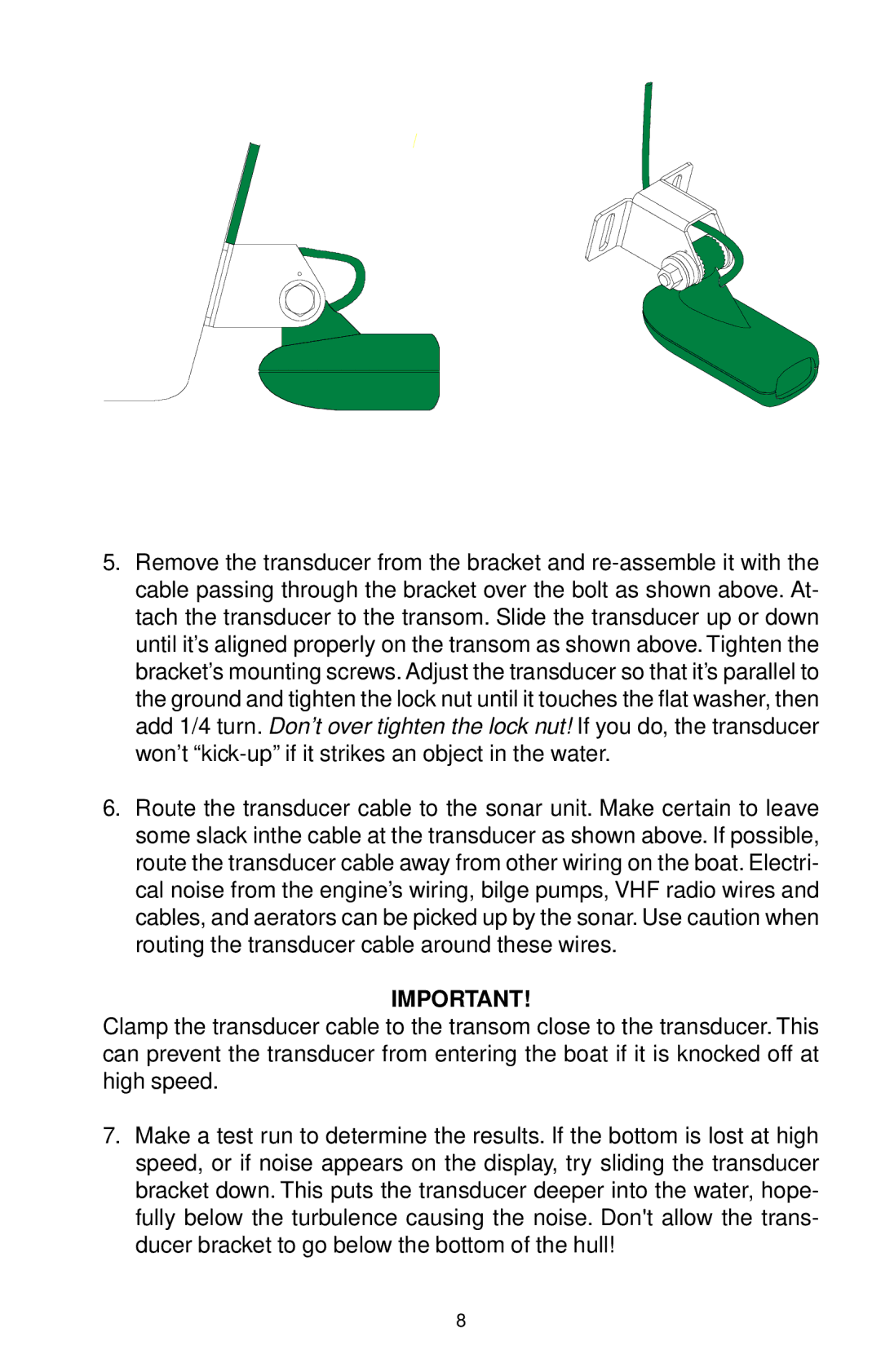
5.Remove the transducer from the bracket and
6.Route the transducer cable to the sonar unit. Make certain to leave some slack inthe cable at the transducer as shown above. If possible, route the transducer cable away from other wiring on the boat. Electri- cal noise from the engine’s wiring, bilge pumps, VHF radio wires and cables, and aerators can be picked up by the sonar. Use caution when routing the transducer cable around these wires.
IMPORTANT!
Clamp the transducer cable to the transom close to the transducer. This can prevent the transducer from entering the boat if it is knocked off at high speed.
7.Make a test run to determine the results. If the bottom is lost at high speed, or if noise appears on the display, try sliding the transducer bracket down. This puts the transducer deeper into the water, hope- fully below the turbulence causing the noise. Don't allow the trans- ducer bracket to go below the bottom of the hull!
8
